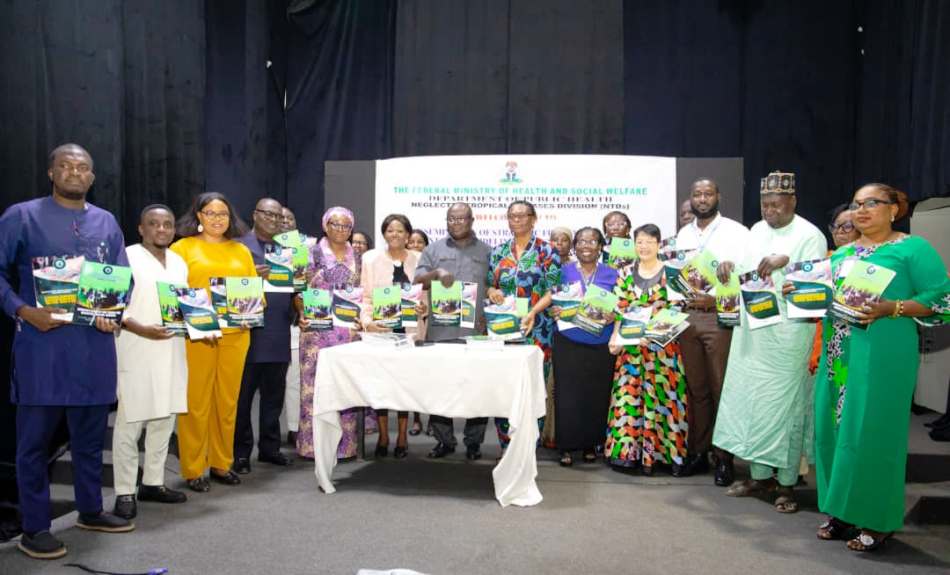Nigeria has taken a decisive step towards tackling one of its most pressing but often overlooked public health challenges, with the Federal Government unveiling two key policy instruments designed to accelerate the elimination of Neglected Tropical Diseases (NTDs) by 2030. The announcement, made at a dissemination meeting in Abuja convened by the Federal Ministry of Health and Social Welfare, marks a major milestone in the nation’s fight against conditions that silently afflict millions of citizens across vulnerable communities.
The newly launched documents the Strategic Framework and Implementation Guidelines for NTDs-WASH and the Advocacy Strategy and Toolkit for NTDs, are expected to reshape Nigeria’s approach to controlling and eradicating diseases that thrive in areas lacking access to clean water, sanitation, and hygiene. Speaking on behalf of the Permanent Secretary, Daju Kachollom, mni, Dr. Nse Akpan described the initiative as a turning point in public health. He noted that NTDs currently affect more than 120 million Nigerians, most of whom are children, women, and the poor living in rural and underserved communities.
“These diseases are not just health issues; they perpetuate cycles of poverty, disability, stigma, and social exclusion,” he said. “The new framework bridges the critical link between WASH (Water, Sanitation and Hygiene) services and disease control, while the advocacy toolkit strengthens our ability to mobilize political will, galvanize community ownership, and attract domestic investment.”
The policy documents are firmly rooted in Nigeria’s existing NTD Master Plan (2023–2027) and WASH Roadmap (2021–2030). By aligning health, water resources, education, and environmental management under a single umbrella, they aim to ensure that interventions are coordinated, sustainable, and impactful. Development partners, including UNICEF, Sightsavers, CBM, MITOSATH, Helen Keller International, Evidence Action, and the Carter Centre, were acknowledged for their technical and financial contributions in shaping the strategies.
Stakeholders at the Abuja meeting stressed that achieving the ambitious 2030 target would require a multi-pronged approach involving stronger surveillance systems, increased domestic financing, and deeper collaboration across sectors. Diseases such as trachoma, schistosomiasis, and lymphatic filariasis remain endemic in many Nigerian states, and health experts warn that without scaling up intervention programs, the elimination goal may be difficult to meet.
Dr. Margaret Mafe, Chairman of the NTD-WASH Subcommittee, issued a call for urgency, noting that water, sanitation, and hygiene improvements cannot be treated as optional add-ons. “WASH improvements are not optional; they are fundamental. The path to eliminating NTDs lies in investment, effective collaboration, and the smart use of advocacy tools to secure policy action and community commitment,” she said.
The Federal Government reiterated its commitment to translating strategy into results, urging state and local governments to take ownership of the programs and implement them at the grassroots level. Officials emphasized that with political will, adequate resources, and the active involvement of communities, Nigeria can reach the global target of eliminating NTDs by 2030 and deliver healthier, more dignified lives for its citizens.













Leave a comment